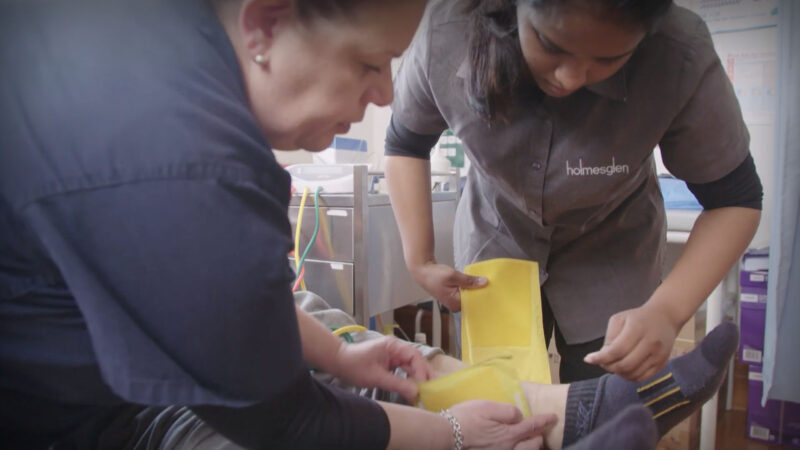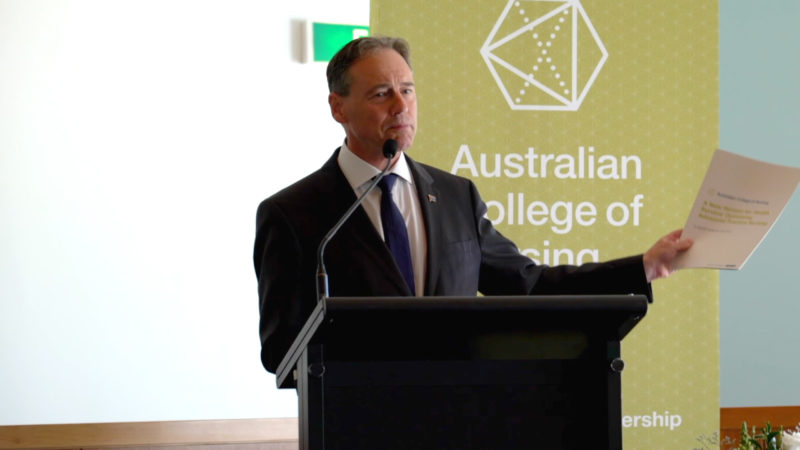In March 2022, the Australia government announced $350 million of funding over 4 years to employ on-site pharmacists in residential aged care, starting July 2023. In April 2023, the government made changes to the proposed on-site pharmacists, where the new program will now be delivered by and through community pharmacies. Regardless of how the model will be implemented, the goal remains the same – to improve quality use of medicines and medicines safety for aged care residents.
While it is relatively easy for pharmacists to monitor and manage some types of medicine harms (e.g., due to use of inappropriate medicines), many medicines can cause “milder” harms (e.g., poor balance, sedation) that are difficult to detect without the right tools. Left unmanaged, these “milder” harms can lead to serious adverse events such as injurious falls, according to Pharmacist Julian Soriano talking to Australian Health Journal.
In a joint project between UniSA, Tanunda Luteran Home, Flinders University and UNSW, a digital solution has been used to create an evidence-based, medicines use model to assist pharmacists (on-site aged care or community pharmacists) with actively monitoring medicine harms.
An interdisciplinary team at the University of South Australia (UniSA), University of New South Wales (UNSW) and Flinders University is currently implementing the TeleClinical Care (TCC) platform incorporating data from a suite of digital technologies to enable pharmacist at the Tanunda Lutheran Home (where Julian Soriano works) to actively monitor their aged care residents.
The ARIIA funded project is being conducted in two phases:
i) Phase 1 involves developing protocol to extract data from digital technologies (e.g. activity trackers, sleep tracking mats) into the TCC platform. The core of the existing TCC platform is a dashboard that includes longitudinal visualisations of changes in residents’ health and well-being over time. Other existing data sources collected in residential aged care will be uploaded to the dashboard, including medicine use (e.g. medicine changes, sedative load), clinical care record (e.g. bowel movement) and adverse events (e.g. falls, hospital admission).
ii) Phase 2 involves a pre-post implementation study over 12-weeks, with 30 residents recruited from the Tanunda Lutheran Home. The selected digital technologies will first be installed for all enrolled residents who provided written consent. Enrolled residents will also be asked to use an activity tracker. Prior to service provision, two weeks’ baseline data will be collected from the digital technologies; the data will serve as reference point for future changes. Pharmacists will monitor all participants using the centralised TCC dashboard.
As Soriano states, “A platform like this is going to make that job much more streamlined. And the use of sensors such as a sleep tracker and activity tracker is also going to help provide the pharmacist with more information to be able to make more informed decisions, more informed recommendations for residents, their families and their treating GPs.”
The current workforce challenges in aged care are not forgotten and Soriano expresses hope, that “this platform won’t increase the burden on residents and the staff there in terms of gathering this information. Hopefully this will be quite streamlined and automatic and there won’t be a real big service change for the already overworked nurses and residents living in aged care would just be able to live and not have to worry constantly about being poked and prodded.”
You Might also like
-
Student nurse placements in primary health care
With an urgent need to manage increasing rates of chronic disease, an ageing population, and a rapidly-ageing primary health care nurse workforce, Australia desperately needs more primary health care nurses to enter the workforce before the current generation retires and cannot pass on its skills.
Most nurses start their career in a hospital. Historically, it was difficult for universities and tertiary education providers to arrange placements for student nurses in primary health care. However, the APNA Student Nurse Placement Program provides student nurses with a foot in the door to a career in vibrant primary health care settings such as general practice or community health to perform supervised activities.
-
Nuclear medicine funding a win for men with prostate cancer
Australian men with higher risk prostate cancer now have access to a nuclear medicine scan to help detect and treat metastatic disease, after it was listed on the Medical Benefits Schedule (MBS) from 1st July 2022.
In 2021 over 18,000 Australian men were diagnosed with prostate cancer, resulting in over 3,000 lives being lost – and making prostate cancer Australia’s second most common cause of cancer death in men.
Australian Health Journal spoke with AANMS President Associate Professor Sze Ting Lee and Dr Geoff Schembri on the MBS listing and the efforts to get it listed.
-
“Nurses can do more, should do more and now they will do more”, The Hon Minister Greg Hunt MP, Minister for Health.
Advanced Practice Nurses comprise 9% of the total nursing workforce, with 26,000 clinicians Australia wide. However although highly skilled, they are under-utilised and constrained to the full scope of practice. The Australian College of Nursing believes this needs to change. Nurse led models of care in which Advanced Practice Nurses play a significant role in service provision, must feature in the future. ACN President Professor Christine Duffield FACN states, “It’s now widely acknowledged internationally that nurses can provide a clinical and very valuable service that’s better suited to the healthcare needs of some consumer groups.”



